 TEDxRainier
TEDxRainier
In this presentation (filmed in October 2010), Patricia Kuhl shares astonishing findings about how babies learn one language over another — by listening to the humans around them and “taking statistics” on the sounds they need to know. Clever lab experiments (and brain scans) show how 6-month-old babies use sophisticated reasoning to understand their world.
 February 10, 2011
February 10, 2011 Center on the Developing Child Harvard University
Center on the Developing Child Harvard University Center on the Developing Child Harvard University
Center on the Developing Child Harvard University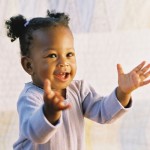 For years, psychologists have argued that humans enter the world devoid of morality. However, a growing body of evidence suggests that humans do have a rudimentary moral sense from the very start of life, and babies can demonstrate a basic understanding of right and wrong.
For years, psychologists have argued that humans enter the world devoid of morality. However, a growing body of evidence suggests that humans do have a rudimentary moral sense from the very start of life, and babies can demonstrate a basic understanding of right and wrong. Serious depression in parents and caregivers affects not only the adults who are ill but also influences the the well-being of the children in their care. The first joint Working Paper from the National Scientific Council on the Developing Child and the National Forum on Early Childhood Program Evaluation summarizes recent evidence on the negative effects of severe depression on children and families. The report also highlights the need for early intervention to ensure mothers’ well-being and children’s healthy development.
Serious depression in parents and caregivers affects not only the adults who are ill but also influences the the well-being of the children in their care. The first joint Working Paper from the National Scientific Council on the Developing Child and the National Forum on Early Childhood Program Evaluation summarizes recent evidence on the negative effects of severe depression on children and families. The report also highlights the need for early intervention to ensure mothers’ well-being and children’s healthy development. 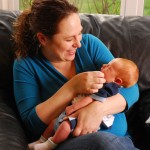 A growing body of scientific evidence demonstrates that emotional development begins early in life and is closely connected with the emergence of cognitive, language and social skills. Early emotional development lays the foundation for later academic performance, mental health and the capacity to form successful relationships.
A growing body of scientific evidence demonstrates that emotional development begins early in life and is closely connected with the emergence of cognitive, language and social skills. Early emotional development lays the foundation for later academic performance, mental health and the capacity to form successful relationships.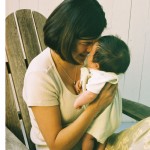 This edition of the InBrief* series addresses basic concepts of early childhood development, established over decades of neuroscience and behavioral research, which help illustrate why child development—particularly from birth to five years—is a foundation for a prosperous and sustainable society.
This edition of the InBrief* series addresses basic concepts of early childhood development, established over decades of neuroscience and behavioral research, which help illustrate why child development—particularly from birth to five years—is a foundation for a prosperous and sustainable society.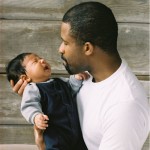 The foundations of brain architecture are established early in life through a continuous series of dynamic interactions in which environmental conditions and personal experiences have a significant impact on how genetic predispositions are expressed. Because specific experiences affect specific brain circuits during specific developmental stages—referred to as sensitive periods— it is vitally important to take advantage of these early opportunities in the developmental building process.
The foundations of brain architecture are established early in life through a continuous series of dynamic interactions in which environmental conditions and personal experiences have a significant impact on how genetic predispositions are expressed. Because specific experiences affect specific brain circuits during specific developmental stages—referred to as sensitive periods— it is vitally important to take advantage of these early opportunities in the developmental building process. Science tells us that experiences early in life may have long-term consequences for a child’s learning, behavior and both physical and mental health.
Science tells us that experiences early in life may have long-term consequences for a child’s learning, behavior and both physical and mental health.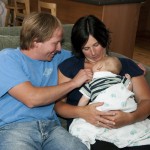 New research shows the critical impact of a child’s “environment of relationships” on developing brain architecture during the first months and years of life. We have long known that interactions with parents, caregivers and other adults are important in a child’s life, but new evidence shows that these relationships actually shape brain circuits and lay the foundation for later developmental outcomes, from academic performance to mental health and interpersonal skills.
New research shows the critical impact of a child’s “environment of relationships” on developing brain architecture during the first months and years of life. We have long known that interactions with parents, caregivers and other adults are important in a child’s life, but new evidence shows that these relationships actually shape brain circuits and lay the foundation for later developmental outcomes, from academic performance to mental health and interpersonal skills.